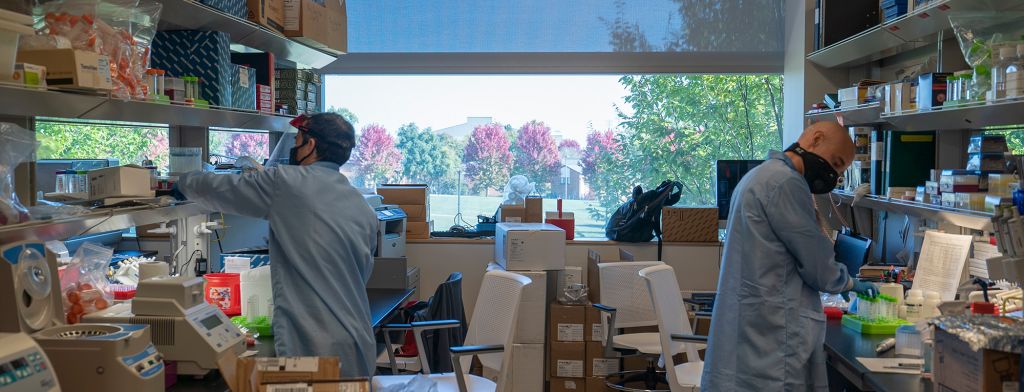
CIDD brings together infectious disease biologists across multiple scales of complexity, from the molecular to population levels, and across all host taxonomies.
The Center for Infectious Disease Dynamics is interdisciplinary, involving faculty, postdocs, students and research personnel across 5 colleges and over 15 departments at Penn State University. The ~70 faculty (30 core) and their associated research teams are united by a focus on infection and a commitment to improving human, animal and plant health. The majority of the core faculty are co-located in a purpose-built, state-of-the-art building with breakout spaces, conference rooms and computational and empirical faculty co-mingled to maximize interaction.
The center encompasses expertise in such basic fields as ecology, evolution, mathematical biology and molecular biology as well as applied disciplines including epidemiology, drug development and vector control. The strength of the center is in its commitment to reaching across traditional boundaries within the sciences and also beyond, with members that stem from architecture, economics, politics, anthropology, and the social sciences.
CIDD has partnerships across the globe with academic institutions, health agencies, and industry leaders to help bring its science into translational practice. Trainees in CIDD benefit from developing scientifically in this rich collaborative research environment, informed and shaped by real world practice.
The center boasts one of the strongest research outputs in infectious disease research in the country. Examples of translational projects include; drug development for malaria, vector control at the household level for limiting malaria transmission, decision making for measles vaccine deployment, treatment for infection induced hydrocephalus, control of bovine tuberculosis, development of strategies to combat the emergence of antimicrobial resistance, and ecological interventions to prevent the spread of Hendra virus.